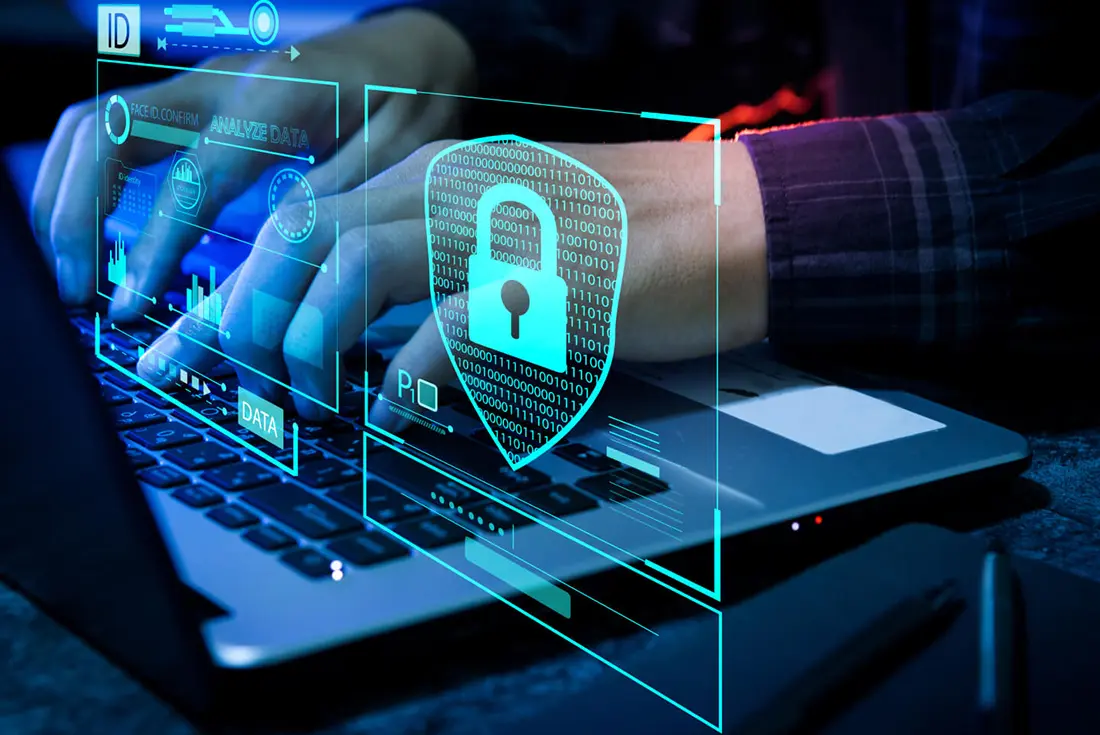
05 Aug The Ultimate Guide to Computer Security for Beginners
Today, your computer isn’t just a tool; it’s a gateway to your personal information, financial data, and memories. Unfortunately, this digital frontier is also teeming with threats—from opportunistic hackers to sophisticated cybercriminals—all vying for a piece of your valuable data. A sudden computer glitching, a frozen screen, or an unexpected pop-up can be signs of a lurking cyber threat, ready to exploit vulnerabilities and wreak havoc on your digital life.
But fear not! Even if you’re not a tech expert, you can take charge of your computer security. It’s about understanding the risks, adopting proactive measures, and staying vigilant. In this guide, we’ll unveil essential best practices for cyber security that go beyond the usual antivirus and strong password advice.
Password Management Best Practices
We all know strong, unique passwords are essential, but remembering dozens of complex combinations is nearly impossible. This is where password managers come to the rescue. These tools act as your digital vault, securely storing and generating complex passwords for each of your accounts. All you need to remember is one master password to unlock the vault. Consider reputable options like 1Password, LastPass, or Dashlane to simplify your password management and significantly enhance your security.
These tools go beyond simple storage. They can generate random, high-entropy passwords that are virtually impossible to crack, and automatically fill your login credentials on websites and apps, saving you time and effort. Some even offer advanced features like breach monitoring, which alerts you if your credentials have been exposed in a data breach, and secure sharing of passwords with trusted individuals.
Securing Your Home Network
Your home Wi-Fi network is the lifeblood of your connected devices. But left unsecured, it’s an open invitation for cyber intruders. Secure your network by changing your router’s default username and password, as these are often easily guessable. Enable the latest WPA3 encryption protocol to safeguard your data in transit, ensuring it remains scrambled and unreadable to unauthorized parties. Consider adding a layer of protection with a network-level firewall, which acts as a barrier between your network and the internet, blocking unauthorized traffic.
Network segmentation is another effective strategy, creating separate networks for different types of devices. This isolates sensitive devices like your laptop from IoT devices, reducing the potential attack surface. Regularly update your router’s firmware to patch any security vulnerabilities that may have been discovered. Firmware updates often include important security fixes, so it’s crucial to install them as soon as they become available.
Ready to bolster your computer’s security and protect your valuable data? Downtown Computer Services is here to help. Our team can assist you with implementing advanced security measures, including setting up password managers, configuring a secure home Wi-Fi network, enabling two-factor authentication, and utilizing biometric authentication features like fingerprint scanners or facial recognition. We can also provide guidance on safe browsing habits and help you develop a comprehensive incident response plan. Don’t wait until it’s too late. Contact us today to schedule a consultation and fortify your digital defenses. Dial: (954) 524 9002.
Two-Factor Authentication
Even the strongest passwords can be compromised. That’s where two-factor authentication (2FA) comes in. It adds an extra layer of security by requiring a second verification factor, such as a unique code sent to your phone or a fingerprint scan (if your laptop has one). Enable 2FA whenever possible, especially for critical accounts like email, banking, and social media.
Many online services now support 2FA through various methods, including authenticator apps like Google Authenticator or Authy, SMS codes, or hardware security keys like YubiKey. Choose a method that suits your preferences and convenience, but remember, any form of 2FA is significantly better than none.
Mitigating Social Engineering Risks
Cybercriminals are becoming increasingly sophisticated, using psychological tricks known as social engineering to manipulate you into giving up your data. These scams can come in many forms – phishing emails that appear to be from your bank, tech support calls from “Microsoft,” or even messages from a “friend” in need.
Phishing emails often contain urgent requests for you to update your account information, verify your identity, or download an attachment. These emails may look legitimate, but they often contain malicious links or attachments that can install malware and cause computer glitching or steal your login credentials. Be wary of any unexpected emails or requests for personal information, even if they appear to come from a trusted source.
Phone and messenger scams are also prevalent. Scammers may impersonate bank representatives or tech support agents, trying to trick you into revealing sensitive information or granting remote access to your computer. Remember, legitimate organizations will never ask for your password or other sensitive information over the phone. If you receive a suspicious call, hang up and contact the organization directly using a verified phone number.
Social media is another platform where social engineering tactics are common. Be cautious about accepting friend requests from people you don’t know, and avoid clicking on links or downloading files from unknown sources. Scammers may also create fake profiles or pages to impersonate legitimate businesses or individuals.
Always be skeptical and verify requests for personal information or financial transactions. If in doubt, contact the organization directly through a verified channel. Remember, if it sounds too good to be true, it probably is.
Software Security Hardening
Keeping your operating system and applications up to date is vital, as updates often include critical security patches. But go beyond the basics. Opt for privacy-focused browsers like Brave or Firefox that block trackers and ads by default. Disable unnecessary browser extensions, as these can be entry points for malware. When on public Wi-Fi, use a reputable VPN to encrypt your traffic and shield your data from prying eyes.
Paid VPNs offer more robust security features and privacy protections compared to free options, which may log your data or inject ads. Consider a reputable VPN provider like NordVPN or ExpressVPN for enhanced security and privacy while browsing online.
Physical Security Measures
Physical fortifications in computer security go beyond just digital defenses; they involve tangible measures to safeguard your devices. Employing a simple laptop lock or cable to anchor your device to a stationary object is a practical deterrent against theft, especially in public spaces. A privacy screen adds another layer of defense, thwarting prying eyes from glimpsing sensitive information on your display.
Modern laptops often come equipped with biometric security features such as fingerprint scanners or facial recognition through Windows Hello. These advanced technologies offer an extra layer of protection beyond traditional passwords, ensuring only authorized individuals can access your device.
Always be mindful of your surroundings. Never leave your device unattended in public places, and consider investing in secure storage solutions like lockable drawers or safes for added protection when your devices aren’t in use. These measures collectively create a robust physical barrier against theft and unauthorized access, complementing your digital security efforts.
Conclusion
Now you know the best practices of cyber security that will help you protect your digital life. From implementing strong password management practices and securing your home network to utilizing two-factor authentication and staying informed about social engineering tactics, you can proactively defend against cyberattacks. Remember, hardening your software, implementing physical security measures, and continuously educating yourself are crucial components of a robust cybersecurity strategy.
If you’re feeling overwhelmed or need expert assistance in fortifying your digital defenses, don’t hesitate to reach out. Downtown Computer Services is ready to help you implement robust security measures, tailor solutions to your specific needs, and provide ongoing support to ensure your computer remains safe and secure.
Don’t wait for a cyberattack to disrupt your life. Contact Downtown Computer Services today at (954) 524 9002 and let us help you achieve peace of mind in the digital world.
Key Takeaways
- There are computer security measures beyond well-known ones like antivirus software and strong passwords, including network segmentation and physical security.
- Implementing strong password management, securing your home network, and using two-factor authentication are essential steps to protect your digital life.
- If you want to make your computer more secure, consider seeking professional assistance to implement advanced security measures.
Check out other relevant news
- How Easy-to-Use Hacking Tools Are Fueling Cybercrime
- Cryptocurrency Security for Small Businesses: Protecting Your Wallet
- The Infostealer Epidemic: Protecting Your Business from the Latest Wave of Cyberattacks
- The Identity Crisis: How Compromised Credentials Can Cripple Your Business
- Beyond the Brick and Mortar: Building Your Online Storefront with Digital Marketing
